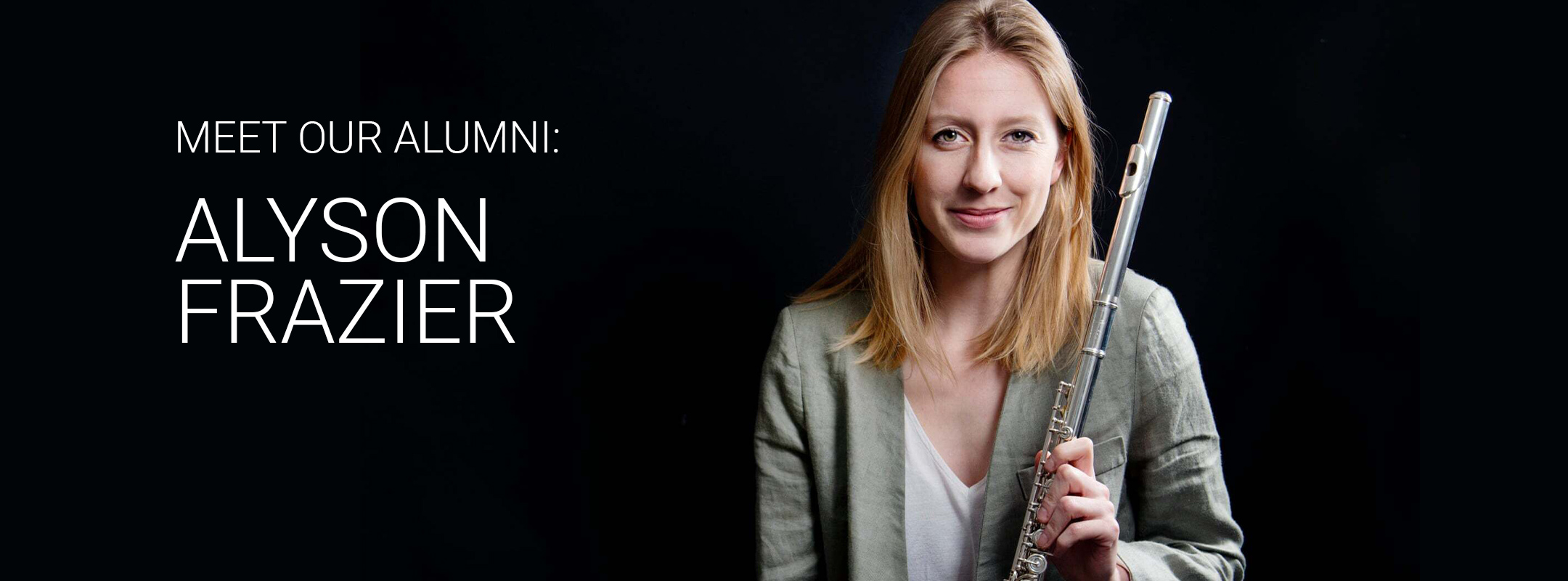
flute, 2017
What motivated you to join Southbank Sinfonia originally?
I was keen to get experience playing in an orchestra on a daily basis where I could experiment with technique, balance, physicality, ensemble playing etc. within stable sections. While studying for a degree you end up dedicating the majority of your time to isolated practice and there are few opportunities to play in situ where you can test out honed practice/theories and apply them. When that rare chance does come along, it’s often under such circumstances that you can’t take full advantage of the potential learnings - i.e. you can’t take many risks or experiment with different approaches because of the pressure to deliver or a short rehearsal period.
As a member of Southbank, I was thrilled to be able to capitalise on the stability of the sections and the ensemble as a whole, as well as the inherent 'job security.' All this allowed me to take risks and properly experiment, and as a result I learned and honed a lot.
What is your favourite memory from your time in Southbank Sinfonia?
While of course the trip to Anghiari tops the list of memorable experiences with Southbank, playing first flute for Beethoven's ‘Eroica’ Symphony with Mark Wigglesworth was the undeniable musical highlight for me. It was so light, joyful, energetic, and dynamic, and his demand for total commitment to the collective sound really made something of the group. It was pure flight.
What has been the most exciting thing to happen to you since leaving Southbank Sinfonia?
My first Prom (with the London Symphony Orchestra and Simon Rattle no less!), getting a 'standing o' from a packed Royal Albert Hall for playing the solo piccolo part of E.T. with the BBC Concert Orchestra, and my first time recording at Abbey Road. Talk about dreams, dreams, dreams!
What did a typical working week look like for you before COVID-19?
Who the heck knows! A lot of the work that I get comes in last minute, so I never know what a week will hold, which I love. That said, when I’m not playing in an orchestra or with my contemporary music group Ensemble x.y, you could probably find me in or around Croydon running my charity, Play for Progress.
You co-founded Play for Progress, a charity that delivers therapeutic and educational music and arts programmes, advocacy, and well-being support for unaccompanied minor refugees and asylum seekers – could you tell me a bit more about your work and the organisation?
Well buckle-in, ‘cause here’s the whistle-stop summary:
We are a therapeutically-grounded, artistically-focused, and advocacy-informed organisation committed to social change. We’re working hard to develop: a resilient and trauma-aware community committed to meaningful human connection through play; the confident, creative voices of young people who want and need to be heard and seen; the personal, social, emotional, communication, leadership, and growth skills of all participants, from young people to practitioners; and a healing space where we can practice mutual trust through reliable, positive, healthy relationships.
Ultimately, our close-knit and resilient community of young people, artists, musicians, activists, educators, therapists, and allies is committed to ensuring that we all have a place where we can grow, heal, and play for progress. We are united in our conviction that the arts and playful engagement are the undeniable keys to community cohesion, resilience, compassion, and growth. But we have so much to share with you which we simply can’t fit it all into this short description, so please do read more about our work at www.playforprogress.org or on socials under the handle @playforprogress.
Personally, I find that the two halves of my life - performance and the charity - are both vital and mutually nourishing and fulfilling. Through performance I feel first-hand the infinite benefits of engaging with the arts; from the human/social connections and teamwork through to the artistic expression, meditative demanding practice, and abstract joy. Such experiences feed the urgency I feel to ensure that others have the opportunity to experience that feeling for themselves. The charity work, on the other hand, grounds me completely - it is pure human connection and feels like plugging into our collective whole. It’s a space where we can sit together with the difficulties and complexities of life, where we can use our creativity to process and problem-solve, and where I can use my privilege(s) to address wrongs. It keeps me from getting too caught up in the ultimately uncontrollable happenings of a freelance career.
My passion for and pursuits in life can probably be summed up as focusing on and around the richness of shared experience - and I wouldn’t have it any other way.
What goals do you have for the future?
More, more, more! For myself: more playing, more connections, more learning. For society: more funding for the arts and music industries as a whole, more commitment to diversification of voice within those industries, and more support for vital arts-based grassroots community organisations (like mine) which put well-being, playfulness, creativity, and mutual-support at the heart of what they do and use the power of music, imagination, and the arts for its ultimate purpose of bringing people together. Supporting such things can only yield benefits for all of us.
Visit Alyson's website to find out more.
You can read Alyson's profile here.